Identity crisis: White supremacist, racist American cops must be removed, experts say. It will take resolve.
- Oops!Something went wrong.Please try again later.
Heather Taylor remembers reading post after post.
There were more than 400 of them. Facebook posts containing Confederate flags, anti-immigrant and homophobic and racist rhetoric. Posts sharing memes from white supremacist groups. It all hit too close to home.
Because it was home, right in her place of work for almost two decades.
Twenty-two of her fellow St. Louis Metropolitan Police Department officers were caught up in a withering exposé by the national Plain View Project in 2017, which highlighted racist social media posts by police officers.
One officer posted a logo for the Three Percenters, a white supremacist anti-government extreme group. He noted in a 2016 comment, “I know plenty of guys in our profession that would lead the way with the resistance.”
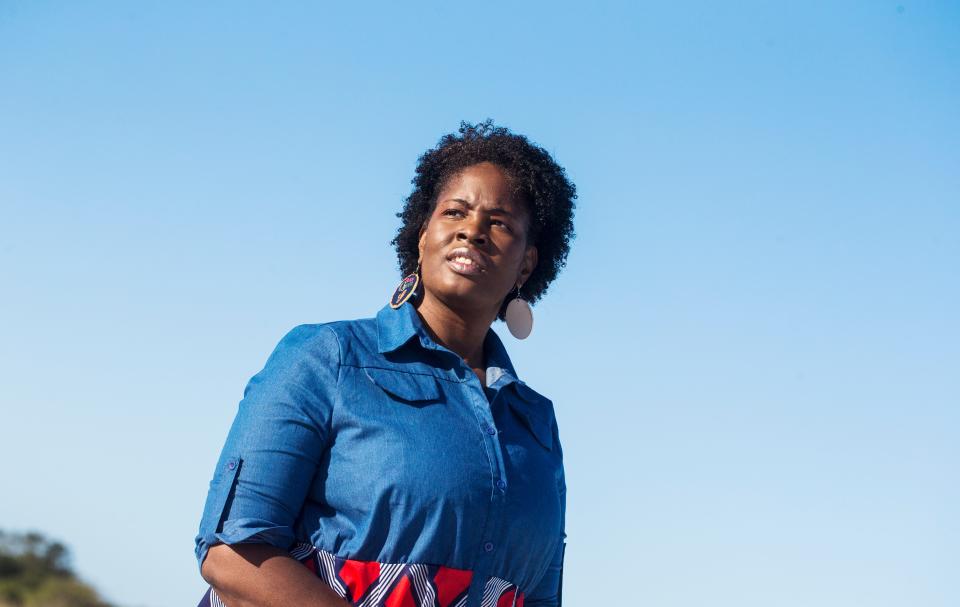
That prediction was accurate enough. When extremists converged upon the Capitol four years later on Jan. 6, the Three Percenters were among them. So were police.
At least seven current or former police officers from six states have been arrested in connection with the riot, according to an arrest database maintained by USA TODAY. Dozens more were under investigation within weeks of the riot.
“You cannot train away white supremacy,” Taylor said as she pauses between two careers, between a past in a troubled department and a future protecting people’s civil rights as an attorney.
“You have to fire it. You have to remove it.”
Ridding police departments of problematic white racist officers will be the work of many years and many people of goodwill. It will take new practices and culture and special policies.
And it can start now, say a half dozen high-profile experts, without fancy databases or acts of Congress.
More: The Plain View Project database
Riot investigation: Feds expect to charge at least 100 more over Capitol riot, pursuing broad conspiracy
Finding racist cops and screening out extreme candidates
Determining what level of racism exists in current officers and properly screening candidates for roles go hand in hand, experts say. And the tools can be similar.
Uprooting the legacy behaviors that smooth the path for racist behavior starts with the culture that police show when hiring. Who will apply, and how are they screened?
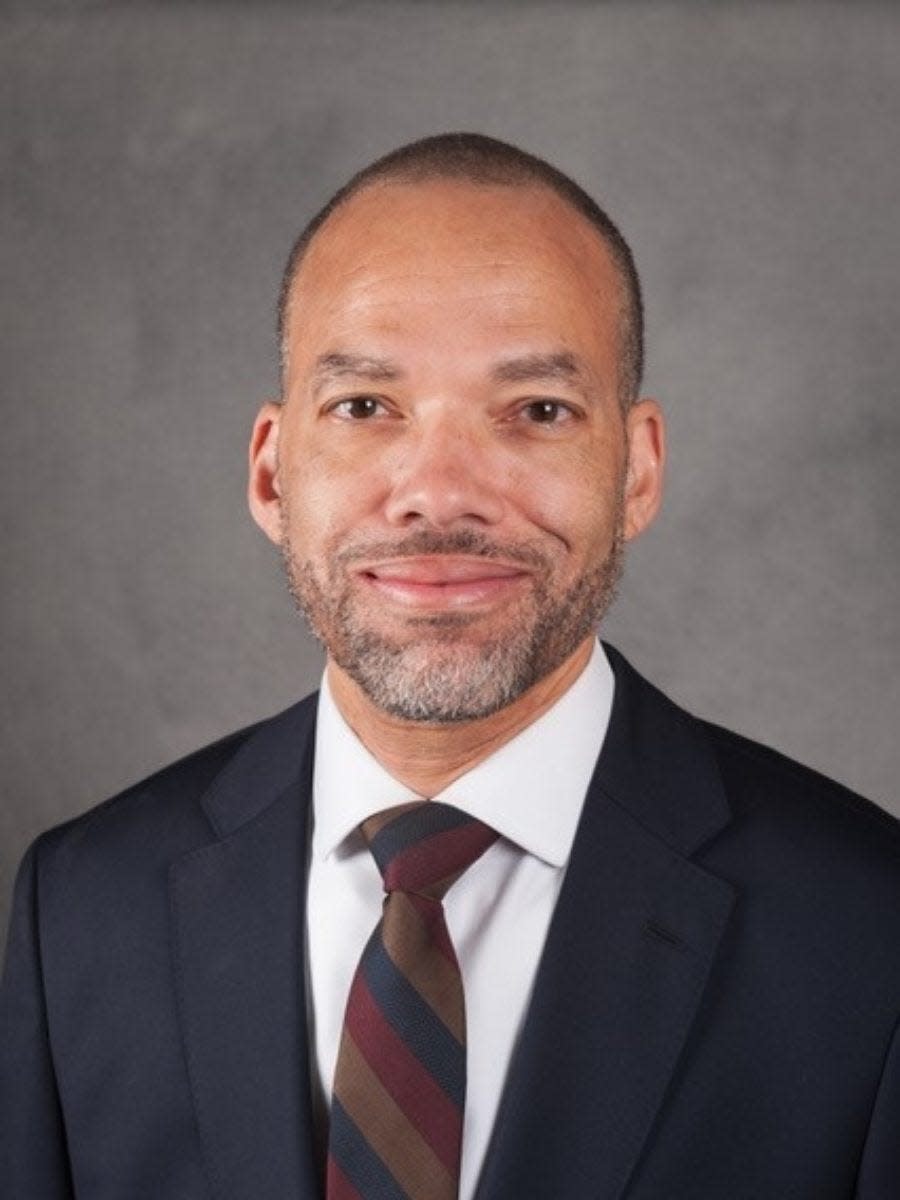
“You get what you design for, so if you select officers based on aggression or a more traditional legalistic mindset, that is what you’re left with,” said Walter Katz of Arnold Ventures, a philanthropic group headquartered in Houston. “You are signaling to recruits and to potential recruits — this is what is important to our department.”
Collective bargaining and state laws that keep problematic officers in their jobs also are a major roadblock, he said.
That’s why the initial backgrounding and screening process can be an extraordinarily valuable way to keep racists and white supremacists out of police forces, says Lorie Fridell. “Don’t hire them in the first place,” she said.
More: White nationalists are once again using Christian symbols to spread hate
The professor of criminology at the University of South Florida is also the CEO of the Fair and Impartial Policing program, which has worked with municipal police agencies and training academies of all sizes across the country.
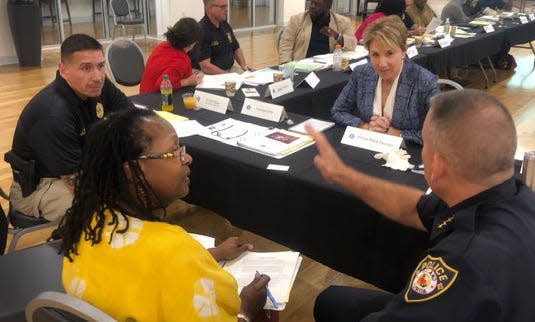
Background screening should include a fair review of a recruit’s social media. The person doing the backgrounding is important. What are their beliefs and views?
Training recruits that they will have a “duty-to-intervene" when they see bias in policing is as important as training for bias-free policing. The commitment, said Fridell, must be evident from the top of the agency down.
“You need a culture that promotes fair and impartial policing,” Fridell said. “And leadership that detects biased policing. Do they hold people to account, do they make sure those people don’t also make it into leadership?”
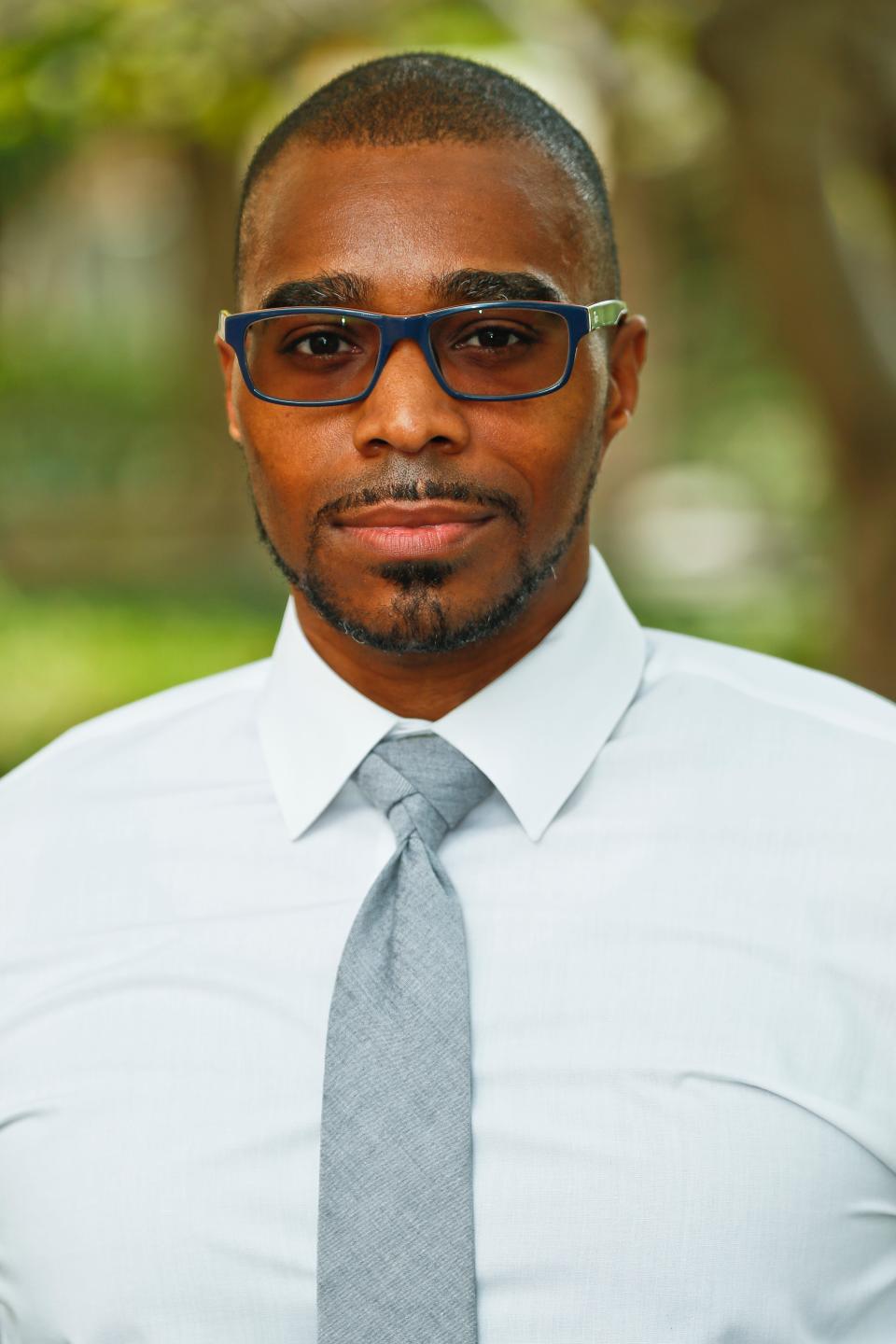
Screening of social media shouldn’t stop after a hire, experts agree. It doesn’t for employees of private companies. But what about the idea that it’s an invasion of police officers’ privacy?
“Bullcrap,” says Brookings Institute fellow Rashawn Ray. Departments do a pretty good job screening out people who have smoked weed or had a domestic violence incident. They need to add social media activity to the filtering. “Police officers have to be held above reproach,” Ray said.
The posts collected by the Plain View Project were available to anyone on Facebook.
Social media leads to discipline: 72 Philadelphia police officers on administrative duty after alleged offensive posts
A more diverse force is less extreme, less violent and won’t tolerate extremism.
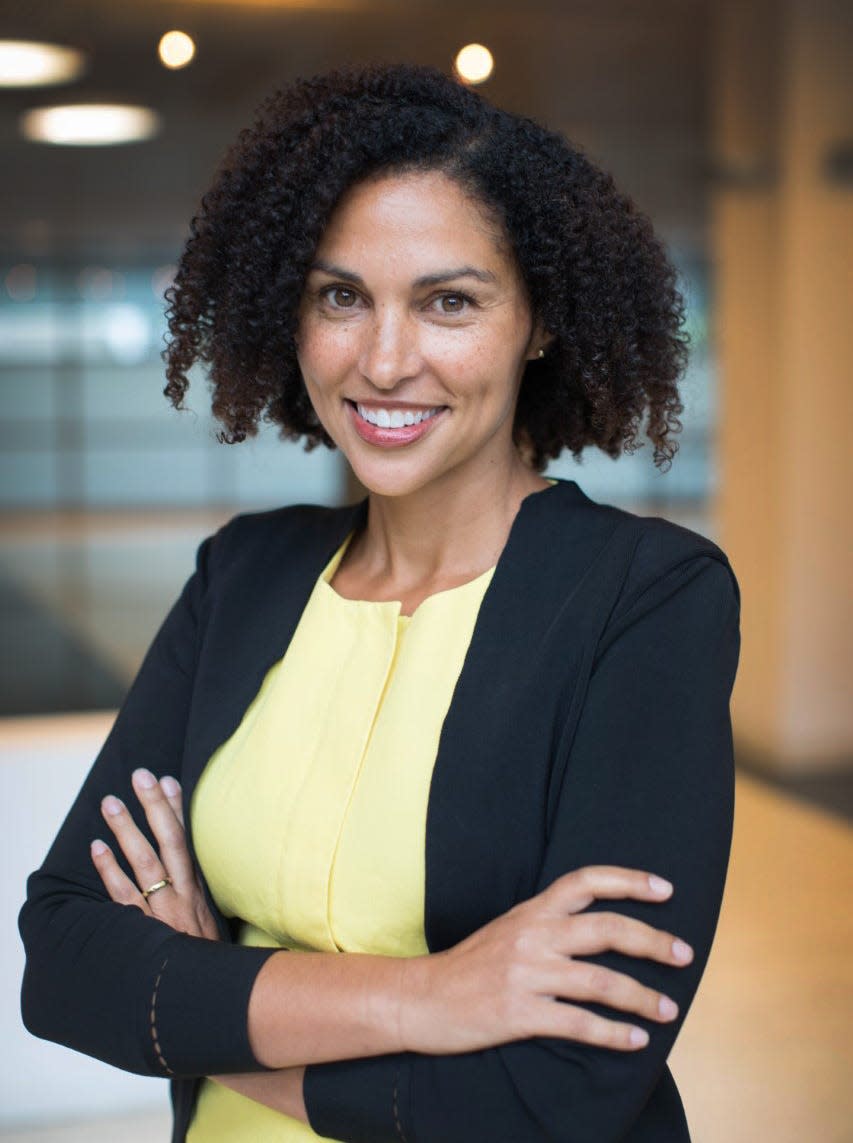
Vida Johnson knows a simple approach to remedy the disproportionate representation of white men in policing.
Hire females and people of color in large numbers.
Johnson, an associate law professor at Georgetown University who has studied white supremacist infiltration of police, said just focusing on women and diversity would go a long way toward building better police forces.
Only 13 percent of police are women and only 3 percent of police chiefs are female, she said.
“Women are less likely to hold extreme political views, and women are less likely to use force and more likely to de-escalate a situation.”
She advocates for a federal police licensing requirement. It exists for other professions entrusted with our safety, like pilots. Why not for police?
Johnson would like to see American police focus more on far-right domestic terror threats and less on street crime, which disproportionately targets people of color for often minor events. Incidents like in February when multiple Rochester, New York, police cruisers converged on the scene of an alleged drugstore theft and a Black woman was taken down and pepper-sprayed while her 3-year-old looked on. She was later charged with trespassing.
Finally, Johnson said, check who is doing your recruiting.
“White nationalists are being hired by other white nationalists,” Johnson said. “At least two at the U.S. Capitol invasion were police recruiters. It isn’t hard to get those police jobs as a racist if you have someone sympathetic to those views.”
Extremism in the U.S.: Domestic extremism has become 'mainstream,' could threaten American life for 20 years
Legacies: A tale of two cops
It made sense: his dad was a cop so he would be a cop, too. Josh Hastings applied to the Little Rock, Arkansas, police department knowing what would come with the role: a gun, a badge, a paycheck and respect. It was the young man’s legacy, after all.
While submitting for a required polygraph exam, Hastings revealed his connection to another legacy. He’d attended a Ku Klux Klan rally three years earlier while in high school. His friend’s grandfather was a member, the 21-year-old applicant said in what appeared to be a comment on his application contradicting his original response that he’d never attended a meeting of a racist group.
Lt. Johnny Gilbert, a Black officer who’d seen Black men’s applications denied for having any connection with local gangs, wrote a memo advising against hiring Hastings.
Gilbert questioned the applicant’s judgment and maturity. “How does a person go about attending a Ku Klux Klan meeting?” he wrote. “Who are his friends and associates? Why would he place himself in such a bad position based on his upbringing as the son of a police officer?”
Little Rock Police Department hired him in March 2007.
What is systemic racism? Here's what it means and how you can help dismantle it
Five years later, after over a dozen red flags for his behavior that went undisciplined by the force, Hastings fired into a Honda Civic that investigators later determined was either stopped or backing away from him, killing a Black teen. Fifteen-year-old Bobby Joe Moore III died at the scene.
Hastings was arrested and charged with manslaughter, although the charge would be dropped when juries were twice unable to arrive at a verdict.
Legacies upon legacies. White officers in numbers disproportionate to the color of the communities they serve, shooting Black citizens and walking away.
There are officers like Josh Hastings in law enforcement agencies across the nation, both in towns in the old South and in industrial Northeastern cities, in the wealthy suburbs of Texas and in the diverse Pacific Ocean communities of California.
Then there are officers like Heather Taylor.
Taylor knows as much as any person in America about the problems that can infect the ranks of police and the cost that normal citizens can pay in interactions with these officers. As both a child growing up and as a Black homicide detective and sergeant in the St. Louis Metropolitan Police Department, Taylor saw it all.
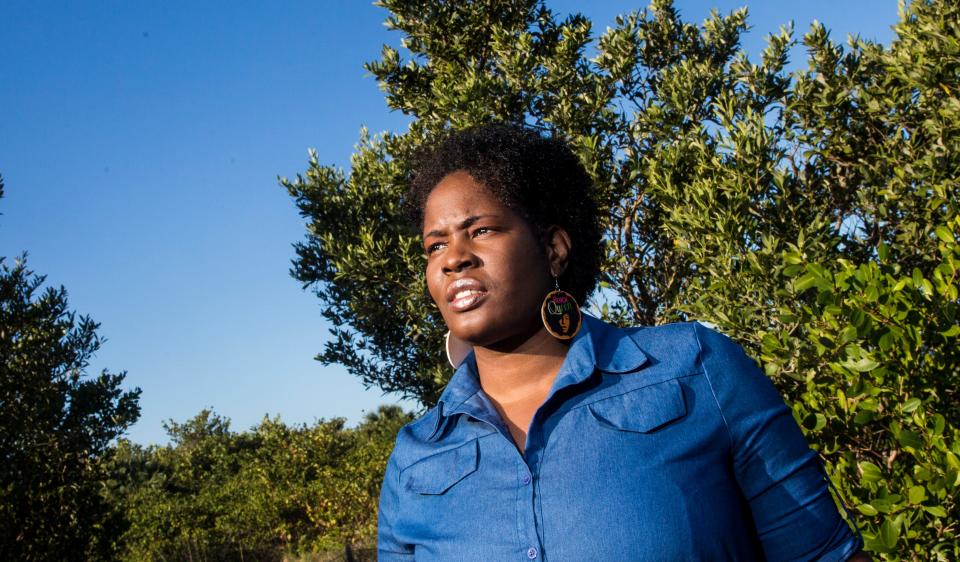
She talked about her hard early life with USA TODAY Network.
The unfair way police treated her brother Diamond growing up pushed Taylor to want to be a police officer, a better one than they were, when she grew up.
Then in 1989 her teenage brother killed a man, Taylor said. Her mother decided to hold her son for police to pick up. That made a deep impression on her daughter.
“She always told me to think of the mother of the man my brother murdered, and that she deserved justice,” Taylor said. “It made me want to stand up for victims of violent crime.”
Her aunt was killed by a deputy marshal when she was a freshman in college four years later. “My aunt is missed every day. She was beautiful and strong,” Taylor said. “Her murder broke my grandmother’s heart, her children’s heart, my mother’s, my siblings’, and mine. I believe she didn’t receive the justice she deserved.”
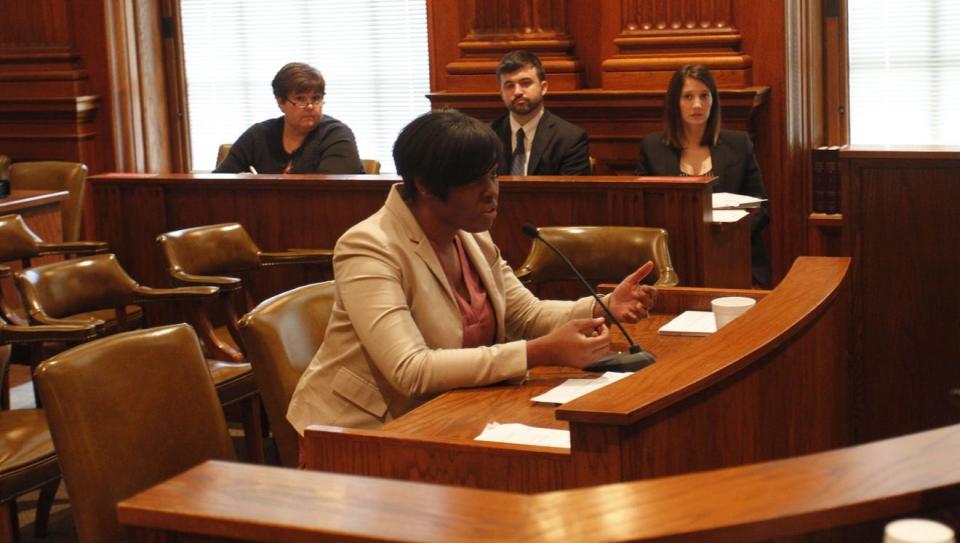
The tragedies steeled her resolve to be a police officer.
She had a long and successful police career in St. Louis.
Taylor called out a long history of racial discrimination on the force and spoke about white officers beating and even shooting their fellow Black officers.
She literally wrote the book on problems that police racism weaves into modern policing. She co-authored two reports for the department’s Black police union (the Ethical Society of Police) about race-based issues in the department and in the community it serves.
She wants police out of schools and out of traffic accident investigations. She’s a fan of cameras on streets and on officers and thinks body-worn cameras can help catch problematic officers earlier in their careers after they pile up several complaints.
She thinks departments should photograph the backs, legs and arms of applicants, looking for hidden racist tattoos from groups like the Three Percenters.
JUSTICE IN MY TOWN - POLICING
100 voices: Police and justice for everyday Americans are needed in my town
Police may start using new ‘safer’ model for decision-making. Its inventor explains why it works.
How one Cheyenne River Sioux officer treats shared trauma: Debriefing and healing on the reservation
How a Colorado town is untangling behavioral health care from the criminal justice system
This Georgia sheriff wants to see new national standards, but he isn’t waiting for them
Forward from upheaval: A shocking death. Three very different roads to better tomorrow.
Modern policing ideas like alternative call centers show results. Will cities implement them?
Taking cops out of traffic stops: Would it make a difference? North Carolina examples offer a clue.
The team behind Justice in My Town – Future of Police
REPORTING: Cassandra Dickman (Stockton, Calif.), Danielle Ferguson (Sioux Falls, S.D.), Victoria Freile and Will Cleveland (Rochester, N.Y.), Samantha Ickes (Wooster, Ohio), Ahmed Jallow (Burlington, N.C.), Sean Jones (Petersburg, Va.), Nikie Mayo (Greenville, S.C.), Ayano Nagaishi (Staunton, Va.), Jozsef Papp (Augusta, Ga.), Sady Swanson (Fort Collins, Colo.)
PHOTOGRAPHY AND VIDEOGRAPHY: Bethany Baker (Fort Collins, Colo.), Erin Bormett (Sioux Falls, S.D.), Jamie Germano (Rochester, N.Y.), Michael Holahan (Augusta, Ga.), Ayano Nagaishi (Staunton, Va.), Clifford Oto (Stockton, Calif.), Ken Ruinard (Anderson, S.C.), Michael Schenk (Wooster, Ohio), Andrew West (Fort Myers, Fla.)
CONTENT & STORYTELLING COACH: Jeff Schwaner
EDITORS: William Ramsey, Jeff Schwaner
DIGITAL PRODUCTION AND DEVELOPMENT: Spencer Holladay, Jeff Morris, Diane Pantaleo
SOCIAL MEDIA, ENGAGEMENT AND PROMOTION: Mason Callejas, Jessica Davis, Zach Dennis, Sarah Duenas, Kara Edgerson, Ana Hurler, Sarah Robinson
This article originally appeared on Staunton News Leader: White supremacist, racist American cops must be removed, experts say

